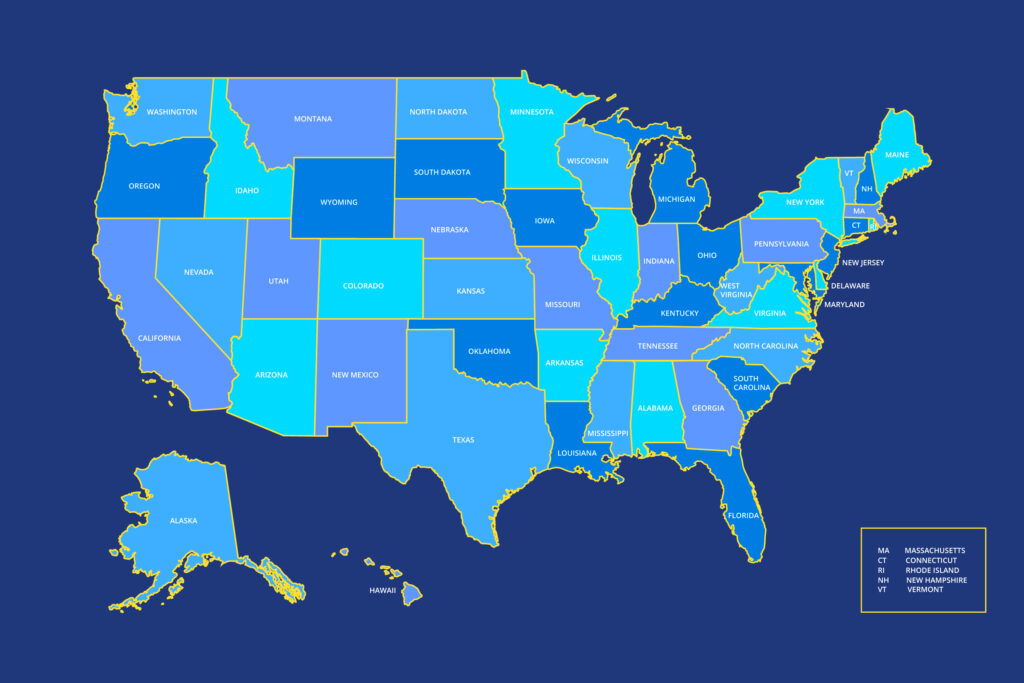⚠️Visitors to our site are often searching for information because they, their friend, or a family member has unfortunately fallen into use of dangerous substances. We aim to provide information on Free Drug Rehab In Illinois and statistics but more importantly, we strive to protect people from the dangers of all forms of substance abuse!⚠️
Don’t hesitate to call our admissions department at (855) 855-9593 or click the button below to get substance abuse help for yourself or a loved one.
We Can Help You Recover From Substance Abuse
Call Golden Road Recovery Today To Start Healing!
Key Points
- “Free” rehab isn’t always completely cost-free—insurance often covers comprehensive treatment.
- Illinois experienced a dramatic increase in opioid overdose deaths, with fatalities nearly doubling between 2013 and 2016.
- Synthetic opioids, particularly fentanyl, significantly contribute to rising overdose deaths.
- Highest opioid overdose rates occur in Cook County and surrounding suburban counties, but rural areas show disproportionately high per capita rates.
- Naloxone administration by emergency services has increased substantially due to potent synthetic opioids.
- Opioid prescription rates in Illinois have declined but remain notably high.
The Myth of Completely Free Drug Rehab in Illinois
When seeking drug and alcohol treatment, individuals frequently search for “free drug rehab in Illinois” It’s important to understand that while completely free services exist, they often come with strict eligibility requirements or limitations. However, many rehab centers, including Golden Road Recovery, offer programs that can significantly offset or entirely cover treatment costs through insurance or scholarship opportunities.
Understanding How Insurance Can Cover Your Rehab in Illinois
Most people are unaware that their health insurance policy often covers substance abuse treatment. Under the Affordable Care Act (ACA), addiction treatment is considered an essential health benefit. This means that if you have insurance—private, Medicaid, or even Medicare—you may qualify for a substantial reduction or complete coverage of your treatment costs.
To determine your coverage, contact your insurance provider and ask specifically about addiction treatment benefits. Golden Road Recovery has admissions specialists who can assist you in navigating this process, verifying your benefits, and clarifying exactly what your insurance covers.
Free Drug Rehab And Statistics By State

Golden Road Recovery has streamlined the process of finding rehabilitation options by state as well as providing statistics. Simply select your state from the dropdown list below to access specific local resources and treatment information.
Illinois Illicit Substance Use Statistics
The opioid crisis represents one of the most severe public health challenges facing Illinois, characterized by alarming increases in both fatal and non-fatal overdoses. The issue spans urban centers like Chicago, suburban areas, and rural counties, highlighting its pervasive impact across demographics and geographies.
Rising Overdose Deaths
Illinois saw opioid overdose deaths rise dramatically from 1,072 in 2013 to 1,946 in 2016, marking an 82% increase. A major factor in this increase is the proliferation of synthetic opioids such as fentanyl, which has shown a tenfold rise in overdose deaths within just three years.

Demographic Analysis
The demographic analysis reveals significant disparities. Cook County, including Chicago, reported the highest absolute overdose numbers. However, rural counties like Kendall County showed alarming percentage increases. Age-wise, the groups most affected are individuals aged 25-44 and 45-64, with men disproportionately affected compared to women.

Impact on Healthcare Facilities
Emergency departments across Illinois have reported substantial increases in opioid-related visits. Heroin overdoses alone nearly tripled between 2014 and 2016, placing immense pressure on healthcare infrastructure.
We Can Help You Recover From Substance Abuse
Call Golden Road Recovery Today To Start Healing!
Naloxone Administration and Harm Reduction
The rise in potent synthetic opioids necessitated increased administration of Naloxone by Emergency Medical Services (EMS), highlighting the critical role of harm reduction strategies. Illinois’s robust response includes harm reduction sites offering safe injection education, clean syringe access, and targeted interventions to minimize overdose risks.
Prescription Practices
While prescription opioid rates have declined by about 10% since 2013, prescriptions remain alarmingly high, equating to roughly one prescription per 8.5 Illinois residents. The Prescription Monitoring Program (PMP) is pivotal in managing prescription practices and reducing doctor shopping.

How Golden Road Recovery Can Assist
Golden Road Recovery offers comprehensive, individualized substance abuse treatment programs designed to address the complex nature of addiction. By providing medically supervised detoxification, specialized inpatient rehab, and personalized counseling, Golden Road Recovery effectively aids individuals in overcoming opioid dependence.
Benefits of Inpatient Medically Assisted Rehab
Medically assisted inpatient rehabilitation represents the gold standard in addiction management, combining medical supervision, medication-assisted treatment (MAT), therapy, and long-term support strategies. It offers an essential environment for safe detoxification, mitigating withdrawal symptoms, reducing relapse risks, and addressing co-occurring mental health issues.
We Can Help You Recover From Substance Abuse
Call Golden Road Recovery Today To Start Healing!
FAQs
1. What are the most common substances causing overdoses in Illinois?
The primary substances include heroin, prescription opioids, and synthetic opioids such as fentanyl.
2. Has the rate of opioid prescriptions in Illinois decreased?
Yes, there’s been roughly a 10% decline from 2013 to 2017, although prescribing rates remain high.
3. Who is most affected by opioid overdoses in Illinois?
Men aged 25-64, particularly in urban and suburban counties, are the most affected.
4. Why is inpatient rehab the best solution for addiction?
Inpatient rehab provides medically supervised detoxification, targeted therapy, medication-assisted treatment, and intensive support, significantly improving recovery outcomes.
5. What role does Naloxone play in combating opioid overdoses?
Naloxone reverses opioid overdoses, saving lives and allowing individuals to receive further medical care.
Sources
Kaiser Family Foundation (KFF) – Illinois State Substance Use Fact Sheet – https://www.kff.org/statedata/mental-health-and-substance-use-state-fact-sheets/illinois
We Can Help You Recover From Substance Abuse
Call Golden Road Recovery Today To Start Healing!




